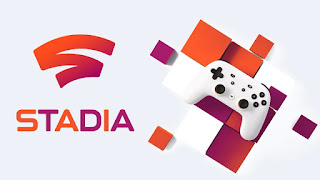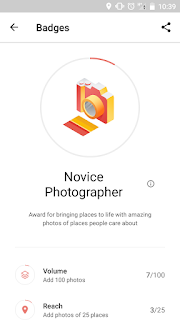Google Stadia – The New Game Changer?
Google Stadia – The New Game Changer?
In March 2019, Google formally announced Stadia during Google's keynote address at the 2019 Game Developers Conference in San Francisco. Google’s Stadia is a cloud gaming service that is capable of streaming video games in 4K resolution and will be accessible through the company's Google Chrome web browser. It is essentially a cloud-based platform that streams games from a remote data center to nearly any device that can run Chrome, is designed to work on laptops, phones, tablets, PCs, Macs, Chromebooks, and TVs with Chromecast.
The Concept and Features:
From a technological perspective it's an impressive concept. The USP of the service lies in the fact that it eliminates the need for heavy gaming or computing hardware to run these games from a user’s perspective. All the heavy and intense graphics processing is outsourced to off-site hardware, requiring users to only have a strong internet connection. Google will also offer its own controller for Stadia which has integrated Google Assistant, its voice-controlled AI technology. It is also said that game developers will be able to incorporate this capability into their games. Additionally, Stadia will have seamless streaming to YouTube with plenty of features that will change the way users jump into multiplayer games (Crowd Play), and share specific gameplay moments for other players to jump into (State Share). When Google tested its service late last year, under the moniker Project Stream and using Assassin’s Creed Odyssey, the company worked within an ideal framework of 25 megabits per second, for 1080p / 60 frames per second streaming. By improving algorithms, the company plans to launch with a target of 4K / 60 frames per second in about 30 megabits per second. The pitch is that Google’s technology advantage will bring players, developers, streamers, and viewers closer together, manifested in millions of connections to a global network of data centers.
Caveats:
Although billed as a game changer, gaming industry experts and practitioners have a few reservations. To start off there is the issue of internet speeds and connectivity. With a plethora of hardware and connectivity impediments that users face across the world, Google will face an uphill task of finding the right balance of providing the optimal content quality with the required level of gaming experience. When quizzed about this, Google dodged the issue by arguing that internet service providers will increase caps to accommodate consumers’ behavior. According to Phil Harrison, Google Vice President, Phil Harrison, “the lowest resolution Stadia will go to is 720p. Google is working on very clever technology that will protect game progress in the event of sudden internet speed drops.” Second, the issue of pricing; Google has held its cards very close to its chest, with some saying that the company may go a conservative route, and price its service much like a traditional Steam-like online retailer or it could opt for a pricier, Netflix-like monthly subscription fee, which would tally with its YouTube TV strategy. It’s also unclear how such a model would work in terms of revenue splits between developers and Google. Third, Input lag was the worst offender for people who were given the opportunity to try out the platform with games like Doom and Assasin’s Creed Odyssey during the event. Finally, in terms of competition, following Google’s announcement of Stadia, Apple announced its new foray into games with Apple Arcade. It is a service that works similar to the Xbox Game Pass and Apple clarifies that it is not cloud-based and that the games can be played offline. In addition to this already established players like Sony and Microsoft, along with giants like Amazon, and Google will be the key players in any cloud gaming war. Sony has the games and PlayStation Now, Microsoft can leverage its Azure data centers and Xbox Game Pass for xCloud, and Amazon can lean on its cloud dominance, Prime, and its massively popular Twitch service to entice gamers. Google has some fierce competition, but it looks like this cloud gaming war is just getting started.
Finally,
The accessibility that Stadia proposes to provide will be unprecedented. It also could signify a paradigm shift in terms of hardware dependence for users looking to get the best gaming experience. Google is not the first one to try to dominate cloud gaming, but it claims to be the first company to move into this unique space in such a manner. If done well, the combination of streaming video games, in-house game developing, and distribution would ring in massive shifts in the industry across several spectrums.
Dr. Manu Melwin Joy, Assistant Professor, School of Management Studies, CUSAT and Sebastian Panattil, Research Scholar, School of Management Studies, CUSAT.




Comments
Post a Comment